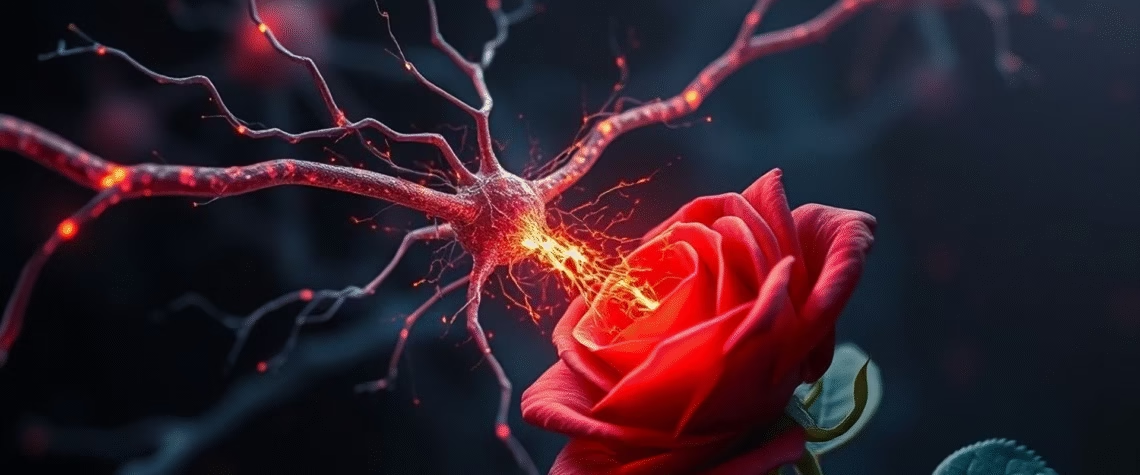The most profound mystery in science is not the birth of galaxies or the origin of life. It is the eerie, undeniable fact of your existence.
Although we can scan the brain when looking at the color red, no image can explain why it feels like red.
This raw, subjective experience — what philosopher David Chalmers calls the ‘hard problem of consciousness’ — sits at the core of one of the most significant debates in modern thought: is consciousness a trick of the brain or a fundamental property of the universe itself?
The Materialist’s Fortress: The Brain as a Generator
The dominant scientific model is clear: consciousness is what the brain does.
Neurons fire. Chemicals flow. Circuits hum. It is from this machinery that the illusion of self emerges.
Consciousness is not an independent entity, but rather a by-product, like the heat given off by a computer while it is running. Change the brain and the mind changes.
Damage the brain, and the mind flickers. Stop the brain functioning, and the self disappears.
This theory is elegant, logical, and testable. And yet many find it deeply unsatisfying.
Cracks in the Fortress
The materialist narrative only explains correlation, not cause. Yes, every mental state is paired with a brain state.
But how does wet, grey matter give rise to the taste of chocolate or the grief of losing someone? Where does the first-person narrator come from?
The anomalies keep piling up:
The Binding Problem: billions of neurons fire separately, yet you experience a unified whole.
Near-death experiences: People report a vivid consciousness when their brain appears offline.
The Quantum Observer Effect: In physics, particles exist as probabilities until they are observed, raising the unsettling question of whether consciousness plays a role in shaping reality.
The Qualia Gap: We know which cones fire in response to red light, but not why red feels different from green.
Materialism keeps pushing the mystery further away: ‘We’ll figure it out someday.’ But decades pass, and the complex problem remains unsolved.
The Consciousness-Energy Hypothesis: Flipping the Script
What if the brain is not a generator, but a receiver?
What if consciousness is not an illusion, but a fundamental energy woven into the fabric of the universe, alongside gravity and electromagnetism?
In this view, the mind is like a radio tuned to a universal broadcast.
Damage the radio, and the sound becomes distorted. Break it, and the sound stops. But the broadcast continues, untouched.
This idea has deep roots. Mystical traditions, from Buddhism to Vedanta, claim that awareness is the basis of everything.
Modern thinkers have echoed this idea in theories such as Orch-OR (Penrose & Hameroff), which suggests that consciousness arises from quantum processes in the brain, and in the philosophy of panpsychism, which argues that even elementary particles contain seeds of experience.
If this is true, then the universe is not a dead machine that has somehow become conscious inside human skulls. Instead, it is awake everywhere, expressing itself through us.
The stakes of the question could not be higher.
If consciousness is brain-generated, we are merely temporary flickers, extinguished when the neurons burn out.
However, if consciousness is energy, death is not annihilation, but transformation. Awareness changes channel, but never disappears.
This is not just metaphysics; it shifts the meaning of life, love, ethics, and even death.
The Abyss We Stare Into
Here is the cruel twist: science may never settle the debate.
Objective tools cannot measure subjective experience. You cannot quantify the color red. You cannot chart the ache of grief in a lab notebook.
So here we are, standing on the edge of the abyss.
On one side is the fortress of materialism: solid and rational, yet hollow. On the other hand, there is the tantalizing prospect that consciousness is energy, the root of reality.
We may never know which is true. But one thing is sure: you are conscious.
The silent witness behind your eyes — the spark that reads these words — remains the only certainty.
This leaves us with the most haunting question: Is the universe awake?


